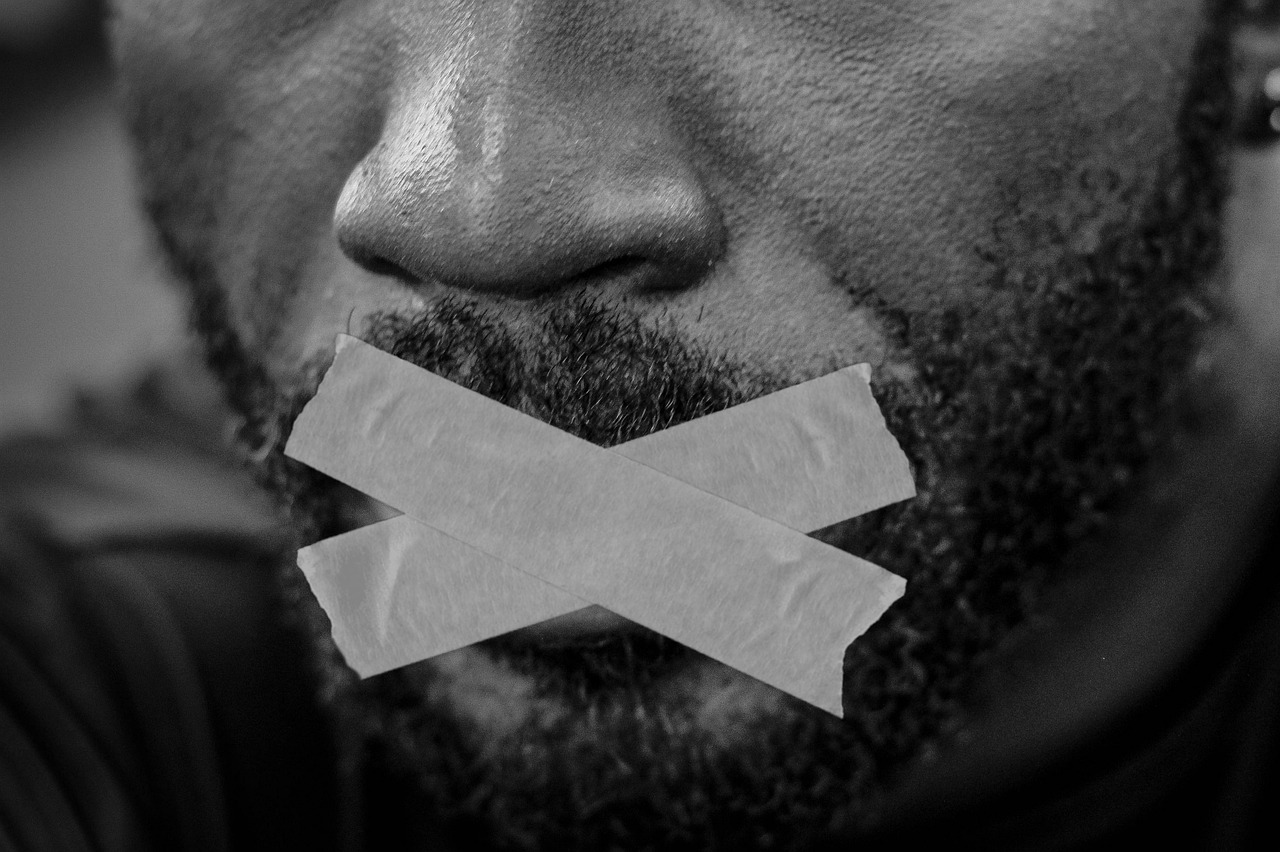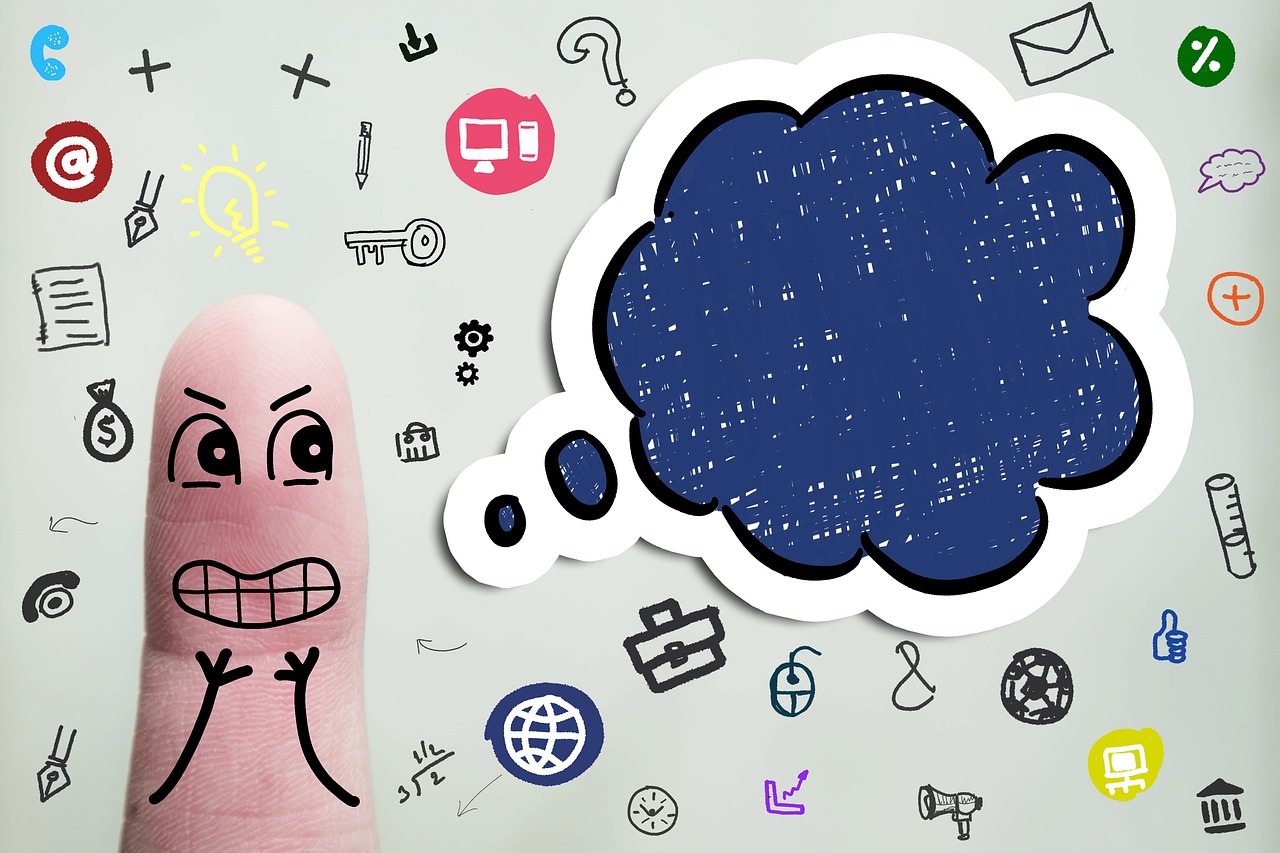The Political Philosophy of Freedom of Speech
Freedom of speech is not just a concept; it's a cornerstone of democratic societies and a fundamental human right that shapes our interactions and the very fabric of our communities. It allows individuals to express their thoughts, opinions, and beliefs without fear of censorship or retaliation. This article dives deep into the principles, historical context, and contemporary debates surrounding freedom of speech, shedding light on its immense significance in promoting individual rights and fostering societal progress. But what does freedom of speech truly mean in today's world? And how does it impact our daily lives? Let's explore these questions together.
To grasp the essence of freedom of speech, we must first understand its historical evolution. From the ancient civilizations that valued oratory as a means of public discourse to the modern democracies that enshrine this right in their constitutions, the journey of free speech is both fascinating and complex. In ancient Greece, for instance, the concept of demokratia (rule by the people) was intertwined with the freedom to speak openly in public forums. Fast forward to the Enlightenment period, where thinkers began to challenge traditional authorities and advocate for individual rights. This historical context not only highlights the importance of free speech but also illustrates the ongoing struggle to maintain it in the face of oppression.
Throughout history, numerous philosophers have profoundly influenced the discourse on freedom of speech. Among them, John Stuart Mill and Voltaire stand out for their groundbreaking ideas that continue to resonate today. Mill, in his seminal work "On Liberty," emphasized the necessity of free expression as a means to pursue truth and societal progress. He argued that even unpopular opinions should be heard, as they contribute to the marketplace of ideas. On the other hand, Voltaire, a fierce advocate for civil liberties, famously declared, "I disapprove of what you say, but I will defend to the death your right to say it." This commitment to tolerance and open dialogue is a vital aspect of the modern understanding of free speech.
The Enlightenment era marked a pivotal transformation in how society viewed speech. It was a time when reason and individualism took center stage, challenging the long-held beliefs of authority and tradition. Philosophers began to advocate for the idea that individuals should have the freedom to express their thoughts and ideas openly. This shift laid the groundwork for the modern principles of free speech that we uphold today. The Enlightenment thinkers believed that through open discourse, society could progress and evolve, leading to a more informed and enlightened populace.
One of the most significant contributions to the philosophy of free speech is Mill's Harm Principle. According to Mill, the only justification for limiting speech is to prevent harm to others. This principle raises essential questions about the boundaries of free expression. For instance, should hate speech be protected under this principle? Mill’s perspective encourages us to consider the implications of our words and the responsibility that comes with freedom. It challenges us to think critically about the balance between protecting individual liberties and ensuring the safety of society as a whole.
Voltaire’s advocacy for free speech is equally important in understanding its philosophical underpinnings. He championed the idea that dissenting opinions should not only be tolerated but celebrated as essential to a vibrant society. His famous assertion about defending the right to express differing views, even if one disagrees with them, serves as a powerful reminder of the importance of dialogue in a democratic society. This advocacy for tolerance and open expression is crucial in navigating the complexities of modern discourse, where differing opinions can often lead to conflict.
In today's digital age, the landscape of free speech is evolving rapidly, presenting both opportunities and challenges. With the rise of social media, individuals have unprecedented platforms to express their views. However, this also brings about issues such as hate speech and misinformation. The question arises: how do we balance the right to free expression with the need to protect individuals and communities from harm? This ongoing debate is critical as we navigate the complexities of free speech in a world where information spreads faster than ever.
The role of government in regulating speech is a contentious issue that highlights the tension between protecting citizens and upholding individual liberties. Governments around the world grapple with how to create laws that safeguard free speech while also addressing the potential for harm. This balance is delicate and varies significantly across different political systems. While some countries prioritize absolute free speech, others impose restrictions aimed at maintaining public order and protecting vulnerable populations. Understanding these differing approaches is essential to appreciating the global landscape of free speech.
Different countries have developed various legal frameworks that govern free speech, reflecting their unique cultural values and political contexts. For example, in the United States, the First Amendment provides robust protections for free expression, while other nations may impose limitations based on historical or societal factors. This diversity in legal approaches underscores the complexity of free speech as a global issue and highlights the need for ongoing dialogue about its implications.
Examining how freedom of speech is perceived and enforced globally reveals a tapestry of interpretations and challenges. In some regions, individuals face severe repercussions for expressing dissenting views, while in others, free speech is celebrated as a fundamental right. Understanding these international perspectives broadens our comprehension of the ongoing struggles for free expression and the importance of advocating for these rights worldwide.
The rise of technology, particularly social media and digital platforms, has revolutionized how speech is expressed and regulated. On one hand, these platforms provide unprecedented opportunities for individuals to share their voices and engage with a global audience. On the other hand, they also pose challenges such as misinformation and online harassment. As we navigate this digital landscape, it becomes increasingly important to consider the implications of technology on free speech. Are we witnessing a democratization of expression, or are we creating new avenues for harm and division? The answers to these questions will shape the future of free speech in our society.
- What is freedom of speech? - Freedom of speech is the right to express one's opinions without censorship or restraint.
- Why is freedom of speech important? - It allows for open dialogue, promotes individual rights, and fosters societal progress.
- What are the limitations of free speech? - Limitations often include hate speech, incitement to violence, and speech that causes harm to others.
- How does technology affect free speech? - Technology provides platforms for expression but also raises challenges like misinformation and online harassment.

The Historical Roots of Freedom of Speech
The concept of freedom of speech is not a modern invention; rather, it has roots that stretch back to ancient civilizations. From the early days of democracy in Athens to the philosophical debates of the Enlightenment, the evolution of free speech has been a journey marked by struggle and triumph. In ancient Greece, for instance, citizens enjoyed a degree of free expression, which was considered essential for the functioning of their democracy. However, this freedom was not universal; it was limited to a select group of individuals, primarily male citizens, while women, slaves, and foreigners were excluded from this privilege.
As we move through history, we see that the Roman Empire also had its own interpretations of speech and expression. While the Romans valued oratory and public debate, they also imposed strict laws against slander and defamation, showing that even in powerful empires, the balance between freedom and regulation was delicate. Fast forward to the Middle Ages, where the rise of the Church brought about a new set of challenges. The Church often suppressed dissenting voices, and many thinkers faced persecution for their ideas. This period illustrates the ongoing tension between authority and the individual's right to speak freely.
The Renaissance and the subsequent Enlightenment period marked a turning point in the understanding of free speech. Thinkers like John Locke and Thomas Hobbes began to advocate for individual rights, including the right to express one’s thoughts and beliefs without fear of retribution. They laid the groundwork for modern democratic ideals, emphasizing that a society cannot thrive if its members are silenced. This era was characterized by a flourishing of literature, art, and philosophy, as people began to challenge traditional norms and express their ideas openly.
During the Enlightenment, the notion of free speech evolved further, becoming a cornerstone of political philosophy. It was during this time that the famous phrase attributed to Voltaire, "I disapprove of what you say, but I will defend to the death your right to say it," encapsulated the essence of free speech advocacy. This statement reflects a profound understanding that tolerating dissent is crucial for a healthy society. The Enlightenment thinkers championed the idea that every individual possesses the right to voice their opinions, which is essential for progress and enlightenment.
In the 18th century, the American and French Revolutions brought freedom of speech to the forefront of political discourse. The First Amendment of the United States Constitution, ratified in 1791, explicitly protects the right to free speech, marking a significant milestone in the legal recognition of this fundamental right. Similarly, the Declaration of the Rights of Man and of the Citizen in France emphasized freedom of expression as a natural right, reflecting the revolutionary spirit of the time.
Today, the historical roots of freedom of speech remind us of the ongoing struggle to protect this vital right. As we navigate the complexities of modern society, understanding the past helps us appreciate the importance of free expression in fostering democratic values and promoting societal progress. The journey of free speech has been fraught with challenges, yet its enduring significance remains a testament to the resilience of human rights.

Key Philosophers and Their Contributions
Throughout history, the discourse surrounding freedom of speech has been shaped significantly by the thoughts and writings of various philosophers. These thinkers have not only defined what it means to express oneself freely but have also explored the ethical implications and societal responsibilities that come with such freedom. Let’s dive into the contributions of a few key philosophers who have profoundly influenced our understanding of free speech.
John Stuart Mill, a prominent figure in the 19th century, is best known for his work, On Liberty, where he articulates the importance of individual freedom in society. Mill's ideas revolve around the concept that individuals should be free to express their opinions, even if those opinions are unpopular or controversial. His Harm Principle posits that the only legitimate reason for restricting speech is to prevent harm to others. This principle is crucial because it sets a boundary for free expression, suggesting that while we should encourage open dialogue, we must also consider the potential consequences of our words.
Another influential thinker, Voltaire, championed the cause of free speech during the Enlightenment. He is famously quoted as saying, “I disapprove of what you say, but I will defend to the death your right to say it.” This powerful statement encapsulates the essence of free speech advocacy. Voltaire believed that tolerance and the ability to dissent were fundamental to a thriving society. His writings laid the groundwork for modern principles of free expression, emphasizing that diverse viewpoints are essential for intellectual and societal progress.
The Enlightenment Era itself was a turning point in the perception of speech as a fundamental right. Philosophers during this time emphasized reason and individualism, challenging the established authorities of their day. The shift in thought encouraged people to question dogmas and engage in open debate, which is a cornerstone of democratic societies today.
To illustrate the contrasting views on free speech, consider the following table highlighting the key ideas of Mill and Voltaire:
| Philosopher | Key Contribution | Core Idea |
|---|---|---|
| John Stuart Mill | Harm Principle | Speech should be restricted only to prevent harm to others. |
| Voltaire | Advocacy for Tolerance | Defending the right to express dissenting opinions is vital for society. |
These philosophers’ ideas continue to resonate in contemporary discussions about freedom of speech. Their work encourages us to reflect on our own responsibilities as speakers and listeners in a world filled with diverse opinions. As we navigate modern challenges to free expression, such as misinformation and hate speech, the foundational principles laid out by Mill and Voltaire remind us of the delicate balance we must strike between protecting individual liberties and ensuring societal harmony.
In summary, the contributions of these key philosophers underscore the importance of freedom of speech as a pillar of democratic society. They challenge us to think critically about how we engage in discourse and the implications of our expressions in a rapidly changing world.
- What is the Harm Principle? The Harm Principle, proposed by John Stuart Mill, states that speech should only be restricted if it causes harm to others.
- Why is Voltaire significant in discussions of free speech? Voltaire advocated for tolerance and the right to express dissenting opinions, laying the groundwork for modern free speech principles.
- How do contemporary challenges affect free speech? Issues like hate speech and misinformation raise complex questions about the balance between free expression and societal protection.

The Enlightenment Era
The Enlightenment Era, often dubbed the Age of Reason, was a remarkable period that spanned the late 17th to the 18th century, fundamentally reshaping the way individuals viewed themselves and their relationship with authority. During this time, thinkers began to challenge traditional norms and beliefs, advocating for reason, individualism, and the freedom of expression. Imagine a world where ideas flowed freely, much like a river breaking through a dam; this was the essence of the Enlightenment, where the power of thought was celebrated, and the shackles of ignorance were slowly being dismantled.
Central to this movement was the belief that every individual possessed the right to express their thoughts and opinions without fear of retribution. This was revolutionary! Thinkers like John Locke and Jean-Jacques Rousseau laid the groundwork for democratic principles, arguing that a government’s legitimacy stems from the consent of the governed, which was a radical shift from the divine rights of kings. The Enlightenment wasn't just about politics; it was a cultural revolution that emphasized the importance of free speech as a catalyst for social progress.
One of the most significant impacts of the Enlightenment was the emergence of the idea that individuals could challenge authority through their words. This period saw the birth of modern journalism and the proliferation of pamphlets and books that questioned the status quo. The printing press played a crucial role in disseminating these ideas, allowing them to reach a broader audience. It was as if a spark had ignited a wildfire of thought, spreading rapidly and igniting discussions across Europe and beyond.
Among the notable figures of this era, Voltaire stands out as a staunch advocate for free speech. His famous quote, “I disapprove of what you say, but I will defend to the death your right to say it,” encapsulates the spirit of the Enlightenment. Voltaire argued that tolerance and the ability to express dissenting opinions were vital for a healthy society. He believed that through open discourse, society could address its flaws and evolve. This idea was revolutionary, as it laid the groundwork for the modern understanding of free speech and its ethical implications.
As we delve deeper into the Enlightenment, it becomes clear that the movement was not without its contradictions. While many Enlightenment thinkers championed freedom of speech, they often held prejudiced views against certain groups, demonstrating that the journey toward universal rights was fraught with challenges. This duality invites us to reflect on the complexities of advocating for freedom of speech in today's world, where the ideals of the Enlightenment continue to resonate but also clash with contemporary realities.
In conclusion, the Enlightenment Era was pivotal in shaping the landscape of freedom of speech. It provided the philosophical underpinnings that would influence future generations and highlight the importance of free expression as a cornerstone of democracy. As we navigate the complexities of modern society, the lessons from this era remind us of the ongoing struggle for individual rights and the necessity of protecting the freedom to speak out against injustice.
- What was the main idea of the Enlightenment Era?
The Enlightenment Era emphasized reason, individualism, and the importance of free expression, challenging traditional authority and norms. - Who were some key figures in the Enlightenment?
Notable thinkers included John Locke, Jean-Jacques Rousseau, and Voltaire, each contributing significantly to the discourse on freedom of speech and individual rights. - How did the Enlightenment influence modern democracy?
The Enlightenment laid the philosophical groundwork for democratic principles, asserting that government derives its legitimacy from the consent of the governed. - What challenges to free speech emerged during the Enlightenment?
While advocating for free speech, many Enlightenment thinkers also held prejudiced views, highlighting the complexities in the pursuit of universal rights.

Mill's Harm Principle
John Stuart Mill, a prominent figure in the realm of political philosophy, introduced the concept of the Harm Principle in his seminal work, "On Liberty." This principle asserts that the only legitimate reason for society to limit an individual's freedom of speech is to prevent harm to others. In simpler terms, you can say whatever you want until it starts to infringe on someone else's rights or safety. This idea is like a double-edged sword; it champions personal liberty while simultaneously recognizing the importance of protecting others from potential harm.
Imagine a bustling marketplace where people are freely exchanging ideas, opinions, and even some heated debates. Mill would argue that this vibrant exchange is essential for societal progress. However, if someone were to incite violence or spread false information that leads to harm, that’s where the line must be drawn. The beauty of Mill's argument lies in its emphasis on individual responsibility—the idea that while we are free to express ourselves, we must also consider the impact our words can have on others.
Mill's Harm Principle challenges us to think critically about the nature of free speech. It raises questions such as: How do we define "harm"? Is it physical, emotional, or social? And who gets to decide what constitutes harm? These inquiries are not just theoretical; they have real-world implications. For instance, in contemporary society, we often grapple with issues like hate speech and misinformation. Should these forms of expression be curtailed to protect individuals and communities, or do they fall under the umbrella of free speech?
To better understand Mill's perspective, we can look at a few key points:
- Freedom of Expression: Mill believed that the free exchange of ideas is vital for personal and societal growth.
- Prevention of Harm: Speech should only be restricted if it poses a clear and direct threat to others.
- Marketplace of Ideas: Mill likened the exchange of ideas to a marketplace where the best ideas will naturally prevail.
In essence, Mill's Harm Principle serves as a guiding light in the ongoing debate about the limits of free speech. It encourages us to navigate the complex waters of expression with a sense of ethical responsibility. As we continue to evolve socially and technologically, this principle remains relevant, urging us to balance our rights with the well-being of others. In a world where misinformation can spread like wildfire, Mill's insights remind us that freedom of speech is not just about what we can say, but also about the consequences of our words.
What is Mill's Harm Principle?
Mill's Harm Principle states that the only justification for limiting an individual's freedom of speech is to prevent harm to others. This means that personal expression should be free unless it poses a threat to someone else's rights or safety.
How does Mill’s Harm Principle apply today?
In modern society, Mill's principle is particularly relevant in discussions about hate speech, misinformation, and censorship. It challenges us to consider the balance between protecting free expression and safeguarding individuals from harm.
Can you give an example of the Harm Principle in action?
An example would be a public speaker promoting violence against a specific group. While they may have the right to express their opinions, if those opinions incite violence or threaten the safety of others, society has a responsibility to intervene.

Voltaire's Advocacy
Voltaire, a towering figure of the Enlightenment, was not just a writer; he was a fervent advocate for freedom of speech. His famous quote, "I disapprove of what you say, but I will defend to the death your right to say it," encapsulates his unwavering commitment to the principle of free expression. This statement serves as a powerful reminder that the essence of free speech lies not in defending popular opinions, but in safeguarding the right to express dissenting views, no matter how controversial they may be.
Living in a time when censorship was rampant, Voltaire faced numerous challenges, including imprisonment and exile. His experiences shaped his belief that free speech is essential for societal progress. He argued that the ability to criticize the government and advocate for change is crucial for the development of a just society. In his writings, he often highlighted the dangers of tyranny and the oppressive nature of silencing dissent. Voltaire believed that a society that stifles free speech is one that ultimately undermines its own progress.
Moreover, Voltaire's advocacy extended beyond mere rhetoric; he actively engaged in debates and discussions that challenged the status quo. He championed the idea that diverse perspectives enrich society and that every voice deserves to be heard. His work laid the groundwork for modern free speech principles, influencing subsequent generations of thinkers and activists who continue to fight for the right to express themselves freely.
In today's world, where the digital landscape can amplify both voices and misinformation, Voltaire's insights remain incredibly relevant. His emphasis on tolerance and the need to embrace differing viewpoints serves as a guiding principle for navigating the complexities of modern discourse. By fostering a culture of open dialogue, we can honor Voltaire's legacy and ensure that freedom of speech continues to thrive.
- What is Voltaire's most famous quote about free speech?
Voltaire is well-known for saying, "I disapprove of what you say, but I will defend to the death your right to say it," highlighting his commitment to free expression. - How did Voltaire's experiences influence his views on free speech?
Voltaire faced imprisonment and censorship, which deepened his belief in the necessity of free speech for societal progress and individual rights. - Why is Voltaire considered a key figure in the discussion of free speech?
His writings and advocacy during the Enlightenment period laid the foundation for modern principles of free speech and tolerance of diverse opinions.

Contemporary Challenges to Free Speech
In today’s fast-paced digital age, the landscape of freedom of speech is evolving at an unprecedented rate. While the internet has democratized access to information and provided platforms for diverse voices, it has also introduced a slew of challenges that complicate the very essence of free expression. One of the most pressing issues is the rise of hate speech. As individuals and groups exploit online platforms to disseminate harmful ideologies, the question arises: how do we balance the right to free speech with the need to protect vulnerable communities from verbal violence?
Another significant concern is the spread of misinformation. In an era where anyone can publish content, the lines between fact and fiction have blurred. This proliferation of false information can have dire consequences, influencing public opinion and even swaying elections. So, what’s the solution? Should governments step in to regulate content, or does that risk infringing on individual rights? This dilemma creates a tug-of-war between free expression and societal protection, raising ethical questions that challenge our understanding of democracy.
Censorship is yet another contemporary challenge. As social media platforms grapple with their roles as gatekeepers, they often find themselves in the crossfire of public opinion. On one hand, they aim to create safe environments free from harassment and abuse; on the other, they risk stifling legitimate discourse. The debate over censorship is further complicated by the varying standards of what constitutes acceptable speech across different cultures and societies.
Moreover, the algorithmic bias of social media platforms can lead to uneven enforcement of speech regulations. Algorithms designed to promote engagement often amplify sensationalist content, which can drown out nuanced discussions. This raises another question: can technology truly uphold the principles of free speech, or does it inadvertently contribute to its erosion?
In essence, the contemporary challenges to free speech are multifaceted and require a careful examination of our values and priorities. We must ask ourselves: how do we navigate this complex terrain? It’s a tightrope walk, balancing the right to speak freely with the responsibility to foster a respectful and informed public discourse. As we move forward, it’s crucial to engage in open dialogues about these issues, ensuring that the principles of free speech are preserved while also addressing the legitimate concerns of society.
- What is hate speech? Hate speech refers to any form of communication that belittles or discriminates against individuals based on attributes such as race, religion, or sexual orientation.
- How does misinformation affect free speech? Misinformation can mislead the public and distort the truth, which can undermine informed decision-making and public discourse.
- What role do social media companies play in regulating speech? Social media companies often set their own guidelines for acceptable speech, which can lead to accusations of censorship or bias.
- Can freedom of speech be limited? Yes, freedom of speech can be limited in cases where it incites violence, constitutes hate speech, or violates other legal standards.

The Role of Government in Regulating Speech
The role of government in regulating speech is a complex and often contentious issue that strikes at the very heart of democratic values and individual liberties. On one hand, governments are tasked with the responsibility of protecting their citizens from harm, which can sometimes necessitate the regulation of speech. On the other hand, excessive regulation can lead to censorship and the stifling of free expression, a cornerstone of any vibrant democracy. So, where is the line drawn? How do we balance the need for safety with the imperative of free speech?
Governments often justify speech regulation under the premise of maintaining public order, protecting national security, or preventing hate speech. For instance, laws against incitement to violence or defamation are commonly accepted as necessary restrictions. However, the challenge lies in defining what constitutes harmful speech without infringing upon the fundamental rights of individuals to express their thoughts and opinions. This delicate balancing act can lead to a variety of outcomes, depending on cultural norms and political landscapes.
In examining the role of government in regulating speech, it is essential to consider different legal frameworks around the world. For example, the United States operates under the First Amendment, which provides robust protection for free speech, allowing for a wide range of expression, including controversial and offensive speech. In contrast, many European countries have stricter laws against hate speech, reflecting a different societal approach to balancing freedom and protection. The table below illustrates some key differences:
| Country | Free Speech Protection | Hate Speech Laws |
|---|---|---|
| United States | Strong protection; minimal restrictions | Limited; primarily focused on incitement |
| Germany | Strong protection; restrictions on Nazi propaganda | Strict; prohibits hate speech and incitement |
| United Kingdom | Moderate protection; some restrictions | Strict; laws against incitement to racial hatred |
Furthermore, the rise of digital platforms has introduced new challenges in this arena. Social media has become a double-edged sword, providing a space for free expression while also serving as a breeding ground for misinformation and hate speech. Governments are grappling with how to regulate these platforms effectively without encroaching on individual rights. Should platforms be held accountable for the content shared on their sites, or should users bear the responsibility? This question remains hotly debated.
Ultimately, the role of government in regulating speech is not just about laws and policies; it reflects deeper societal values and the ongoing struggle to strike a balance between freedom and responsibility. As we navigate through an increasingly complex world, the conversation surrounding free speech regulation will undoubtedly continue to evolve.
- What is the primary role of government in regulating speech? The government aims to protect citizens from harm while ensuring that free expression is upheld.
- How do different countries approach free speech? Countries vary widely in their legal frameworks, with some offering robust protections and others imposing stricter regulations against hate speech.
- What challenges does social media pose for free speech? Social media platforms can amplify harmful content, leading to debates about accountability and regulation.

Legal Frameworks and Free Speech
The legal frameworks surrounding freedom of speech vary significantly across different countries and regions, influenced by cultural values, historical contexts, and political systems. In some nations, free speech is enshrined in the constitution as a fundamental right, while in others, it is subject to stringent regulations and limitations. This divergence raises essential questions about the extent to which governments should intervene in regulating speech and the implications of such interventions on individual liberties.
For instance, in the United States, the First Amendment provides robust protections for free speech, allowing individuals to express their opinions without fear of government retaliation. This legal framework is often seen as a cornerstone of American democracy, fostering an environment where diverse ideas can flourish. However, even within this framework, there are exceptions, such as restrictions on hate speech, obscenity, and incitement to violence. These exceptions illustrate the ongoing tension between protecting free expression and ensuring public safety.
Conversely, in countries like China and North Korea, free speech is heavily curtailed, with strict laws governing what can be said and disseminated. In these contexts, the government often employs censorship as a tool to maintain control over public discourse, stifling dissent and limiting the flow of information. Such measures not only infringe upon individual rights but also hinder societal progress by suppressing diverse viewpoints and critical discussions.
To further illustrate these differences, consider the following table that summarizes various countries' approaches to free speech:
| Country | Legal Framework | Key Limitations |
|---|---|---|
| United States | First Amendment | Hate speech, obscenity, incitement |
| Germany | Basic Law (Grundgesetz) | Holocaust denial, hate speech |
| United Kingdom | Common Law & Human Rights Act | Defamation, incitement to violence |
| China | Constitution (limited enforcement) | Censorship, political dissent |
| North Korea | State Law | All forms of dissent |
As the table indicates, the legal frameworks governing free speech can either empower citizens or suppress their voices, depending on the political climate and societal values. This disparity is crucial for understanding the global landscape of free speech and the varying degrees of protection afforded to individuals.
Furthermore, the interpretation of what constitutes protected speech can evolve over time, influenced by societal changes, technological advancements, and shifting political landscapes. Courts often play a pivotal role in shaping these interpretations, as they balance the need for free expression with the necessity of protecting other societal interests. For example, landmark cases in the U.S. Supreme Court have set precedents that continue to impact the conversation around free speech, illustrating the dynamic nature of legal frameworks.
In conclusion, the legal frameworks surrounding freedom of speech are complex and multifaceted, reflecting the diverse values and beliefs of different societies. As we navigate the challenges of the digital age, it becomes increasingly important to examine these frameworks critically and advocate for a balance that upholds individual rights while protecting the greater good.
- What is freedom of speech? Freedom of speech is the right to express one's opinions and ideas without fear of government retaliation or censorship.
- Are there limitations to freedom of speech? Yes, many countries impose limitations on speech that incites violence, hate speech, and obscenity.
- How does freedom of speech differ across countries? The extent of protection for freedom of speech varies widely, with some countries offering robust protections and others imposing strict censorship.
- What role does the government play in regulating speech? Governments may regulate speech to protect public safety, but such regulations can sometimes infringe on individual liberties.

International Perspectives
When we think about freedom of speech, it's essential to recognize that this principle doesn't manifest uniformly across the globe. Different countries have their own unique interpretations and implementations of free speech, influenced by cultural, historical, and political contexts. For instance, while the First Amendment of the United States Constitution robustly protects free expression, other nations impose various restrictions that reflect their societal norms and values.
In many Western democracies, freedom of speech is seen as a cornerstone of democratic governance. Countries like Canada and Australia have legal frameworks that protect this right, yet they also incorporate provisions against hate speech and defamation. This creates a nuanced balance where the right to speak freely is preserved, but not at the expense of public safety or societal harmony. On the other hand, countries with authoritarian regimes often suppress free speech to maintain control, leading to severe consequences for dissenters. In these contexts, speaking out can result in imprisonment, censorship, or worse.
To provide a clearer picture, let's take a look at some international perspectives on freedom of speech:
| Country | Freedom of Speech Status | Key Restrictions |
|---|---|---|
| United States | Strongly protected | None, except for incitement to violence and obscenity |
| Canada | Protected with limitations | Hate speech and defamation laws |
| China | Restricted | Censorship of dissent, state-controlled media |
| Russia | Limited | Criminalization of "extremism" and anti-government speech |
| Germany | Protected with restrictions | Hate speech laws, especially against Nazi propaganda |
This table illustrates the stark contrasts in how freedom of speech is perceived and enforced. In some regions, the emphasis is placed on individual rights, while in others, the focus shifts toward maintaining social order and state authority. The ongoing debates surrounding free speech in various international contexts raise critical questions about what it means to be free to express oneself in societies that prioritize different values. Are we to prioritize individual liberties over collective safety? Or should societal harmony take precedence over personal expression?
Furthermore, the rise of the internet and social media has added another layer of complexity. In many countries, these platforms serve as vital channels for free expression, allowing voices that might otherwise be silenced to be heard. However, they also become battlegrounds for misinformation and hate speech, prompting governments to consider regulation. The challenge lies in finding a balance that protects individuals while fostering a vibrant public discourse.
In conclusion, the international landscape of freedom of speech is as diverse as the cultures and societies it encompasses. Each nation's approach reflects its values, history, and political climate, making it crucial for advocates of free speech to engage in global dialogues that promote understanding and respect for differing perspectives.
- What is the main purpose of freedom of speech?
Freedom of speech aims to protect individuals' rights to express their thoughts, opinions, and beliefs without fear of government censorship or punishment.
- Are there limitations to freedom of speech?
Yes, many countries impose restrictions to prevent hate speech, incitement to violence, and defamation, balancing individual rights with societal protection.
- How does freedom of speech differ around the world?
Different countries interpret and enforce freedom of speech based on their cultural, historical, and political contexts, leading to varied protections and restrictions.

The Impact of Technology on Free Speech
The advent of technology has revolutionized the way we communicate, and this transformation has profound implications for freedom of speech. With the rise of social media platforms, blogs, and online forums, individuals can share their thoughts and ideas with a global audience at the click of a button. This democratization of information has empowered voices that were once marginalized, allowing for a vibrant exchange of ideas. However, this newfound freedom also comes with significant challenges. How do we navigate the fine line between free expression and the potential for harmful speech?
One of the most pressing issues in today's digital landscape is the prevalence of hate speech and misinformation. Social media platforms have become breeding grounds for toxic rhetoric, where individuals can hide behind anonymity to spread hatred and falsehoods. This raises a critical question: should tech companies regulate the content shared on their platforms to protect users, or does this infringe upon the fundamental right to free speech? The debate is ongoing, with advocates for regulation arguing that unchecked speech can lead to real-world harm, while opponents fear that censorship could stifle legitimate discourse.
Furthermore, the algorithms that govern what we see online play a crucial role in shaping public opinion. These algorithms prioritize content that engages users, often amplifying sensationalist views over balanced discourse. As a result, echo chambers form, where individuals are only exposed to ideas that reinforce their existing beliefs. This phenomenon not only undermines the principles of free speech but also poses a threat to societal progress. If we are only hearing what we want to hear, how can we foster understanding and dialogue among diverse groups?
In response to these challenges, various legal frameworks have emerged globally to address the intersection of technology and free speech. Countries differ significantly in their approaches, reflecting unique cultural values and political contexts. For instance, in the United States, the First Amendment provides robust protections for free speech, even in the face of hate speech. In contrast, many European nations have stricter regulations against hate speech, prioritizing societal protection over individual liberties. This divergence highlights the complexity of regulating speech in an increasingly interconnected world.
To better understand the impact of technology on free speech, we can look at the following table that summarizes key differences in how various countries approach the regulation of online speech:
| Country | Legal Framework | Free Speech Protections |
|---|---|---|
| United States | First Amendment | Strong protections, even for hate speech |
| Germany | Network Enforcement Act | Strict regulations against hate speech |
| United Kingdom | Communications Act | Moderate protections, with laws against hate speech |
| Australia | Racial Discrimination Act | Moderate protections, with some restrictions |
As technology continues to evolve, so too will the conversations surrounding free speech. The rise of artificial intelligence and machine learning presents new challenges and opportunities for expression. For instance, AI can help identify and flag harmful content, but it also raises concerns about bias and the potential for overreach. The key takeaway here is that while technology can enhance our ability to communicate, it also necessitates a careful examination of the implications for free speech. How do we ensure that the digital landscape remains a space for open dialogue and diverse perspectives?
- What is the role of social media in free speech? Social media platforms provide a space for individuals to express their views, but they also face challenges related to hate speech and misinformation.
- How do different countries regulate free speech? Countries vary in their legal frameworks, with some prioritizing individual liberties and others focusing on societal protection.
- What are the implications of AI on free speech? AI can help manage harmful content but may also introduce bias and censorship concerns.
Frequently Asked Questions
- What is the historical significance of freedom of speech?
Freedom of speech has deep historical roots, tracing back to ancient civilizations where the exchange of ideas was crucial for societal development. Over time, it evolved, especially during the Enlightenment, when thinkers like John Stuart Mill and Voltaire championed the idea that individuals should have the right to express their thoughts without fear of censorship. This historical significance underscores its role as a cornerstone of democratic societies, promoting individual rights and societal progress.
- Who are the key philosophers associated with freedom of speech?
Several influential philosophers have shaped the discourse on freedom of speech. John Stuart Mill is renowned for his Harm Principle, which posits that speech should only be restricted to prevent harm to others. Voltaire, on the other hand, passionately advocated for the right to express dissenting opinions and the importance of tolerance in society. Their contributions have laid the groundwork for contemporary understandings of free expression.
- What contemporary challenges does freedom of speech face?
In today's digital age, freedom of speech encounters numerous challenges, including the rise of hate speech, misinformation, and increased censorship by both governments and private platforms. These issues raise critical questions about the balance between protecting individuals from harm and preserving the right to free expression. Navigating these challenges is essential for maintaining healthy democratic discourse.
- How do governments regulate speech?
The extent to which governments regulate speech varies widely across different countries. Some nations impose strict regulations to protect citizens from harmful content, while others prioritize individual liberties, allowing for broader freedom of expression. This tension between protecting citizens and upholding individual rights reflects diverse cultural values and political systems, impacting how free speech is experienced globally.
- How has technology impacted freedom of speech?
The advent of social media and digital platforms has drastically transformed the landscape of free speech. While these technologies provide unprecedented opportunities for individuals to express themselves and connect with others, they also pose significant challenges, such as the spread of misinformation and the potential for censorship. Understanding this dual impact is crucial for navigating the complexities of free expression in modern society.



















